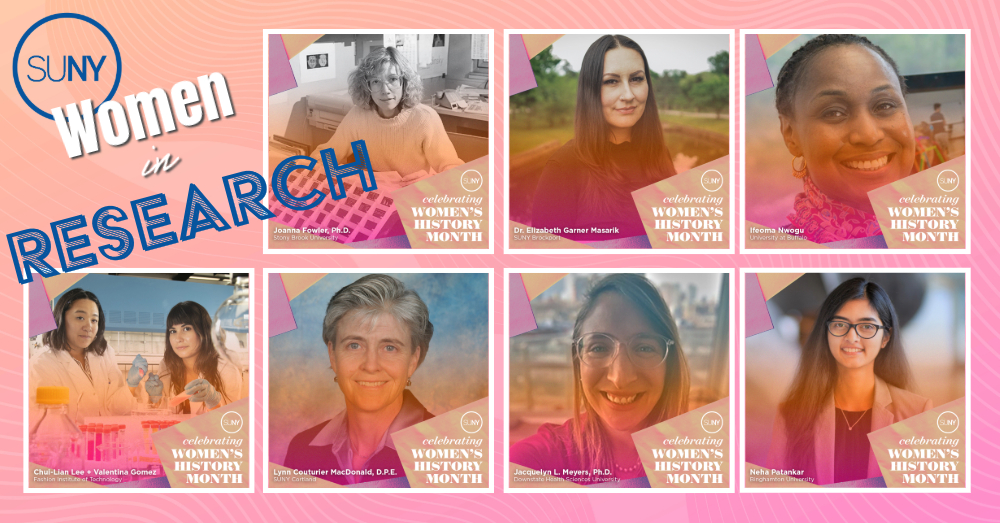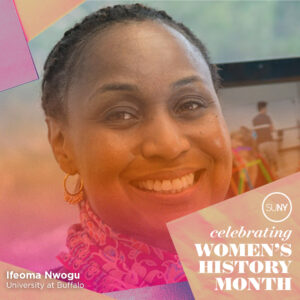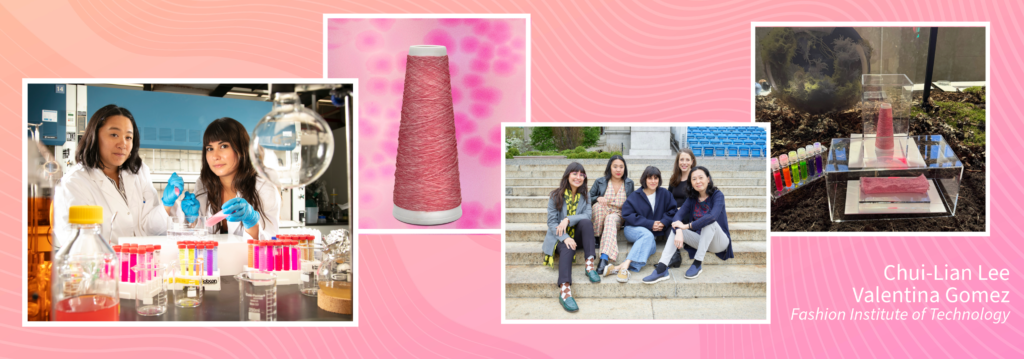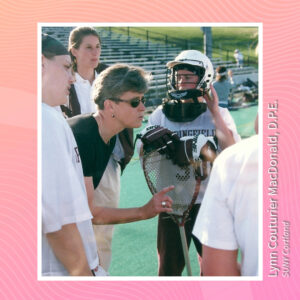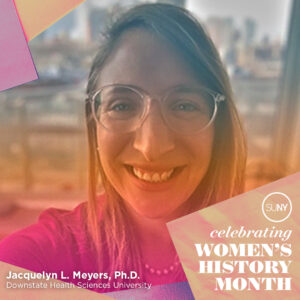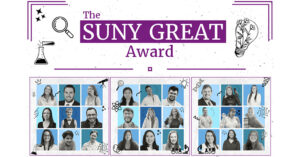SUNY Researchers Making an Impact
Here at SUNY, we have no shortage of women who have made a mark on our world. Throughout Women’s History Month, we’ve had the privilege of spotlighting several exceptional SUNY faculty members. As the month draws to a close, let’s recap the seven incredibly talented women we’ve featured in our social media campaign. Their groundbreaking work and contributions deserve recognition and applause.🌟
First up…
Joanna Fowler, Ph.D. – Stony Brook University
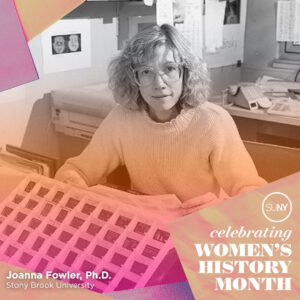 Dr. Joanna Fowler has made significant contributions in the fields of chemistry and biomedical engineering. As a senior chemist emeritus, former director of the PET program at Brookhaven National Laboratory, and adjunct professor at Stony Brook University, Fowler also worked at Mount Sinai School of Medicine in New York and as a Special Volunteer at the National Institutes of Health. Her commitment to the betterment of human life is extensive.
Dr. Joanna Fowler has made significant contributions in the fields of chemistry and biomedical engineering. As a senior chemist emeritus, former director of the PET program at Brookhaven National Laboratory, and adjunct professor at Stony Brook University, Fowler also worked at Mount Sinai School of Medicine in New York and as a Special Volunteer at the National Institutes of Health. Her commitment to the betterment of human life is extensive.
In 1976, Dr. Fowler and her colleagues developed a non-invasive radiotracer to measure brain glucose in humans. This breakthrough facilitated tremendous advances in the study of the human brain and tumor detection in patients with cancer.
In addition to a multitude of patents and peer-reviewed publications, Dr. Fowler was awarded the National Medal of Science laureate in 2008 for her research into identifying and treating illnesses ranging from drug addiction to cancer. She received the National Medal of Science from President Barack Obama in 2009 and was inducted into the Florida Inventor’s Hall of Fame in 2019.
Dr. Elizabeth Masarik – SUNY Brockport
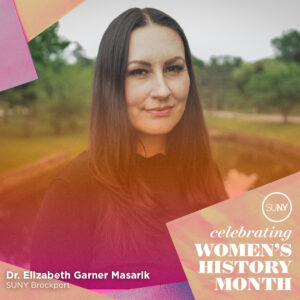 Our second Women in Research feature is SUNY Brockport‘s Dr. Elizabeth Masarik, assistant professor of U.S. Women’s History. As the inaugural fellow for the Dr. Virginia Radley SUNY Fellowship Program, Dr. Masarik is coming off a year-long whirlwind research tour, focused on E.L. Watson and Carrie Twing, two resolute activists. “Both have deep New York roots but traveled the United States extensively working for reforms such as women’s suffrage, women’s equality, and religious freedom,” Dr. Masarik states from the scores of archives, texts, manuscripts, and letters she combed through for an upcoming research project.
Our second Women in Research feature is SUNY Brockport‘s Dr. Elizabeth Masarik, assistant professor of U.S. Women’s History. As the inaugural fellow for the Dr. Virginia Radley SUNY Fellowship Program, Dr. Masarik is coming off a year-long whirlwind research tour, focused on E.L. Watson and Carrie Twing, two resolute activists. “Both have deep New York roots but traveled the United States extensively working for reforms such as women’s suffrage, women’s equality, and religious freedom,” Dr. Masarik states from the scores of archives, texts, manuscripts, and letters she combed through for an upcoming research project.
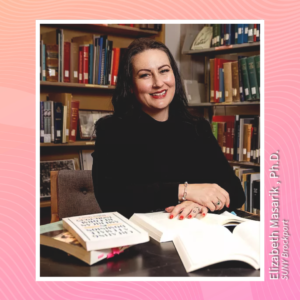
Having recently published her first book The Sentimental State: How Women-led Reform Built the American Welfare State and with her second book she co-authors Spiritualism’s Place: Reformers, Seekers, and Séances in Lily Dale due out later this year. Add founder and producer of the award-winning podcast Dig: A History Podcast to her accomplishments as well as being the recipient of the A. Elizabeth Taylor Article Prize for the best article on women’s history for 2019 from the Southern Association of Women.
Dr. Masarik earned her PhD and MA from the University at Buffalo and her BA from the University of Texas at Austin and is immersed in the research and discovery of what our history holds.
Dr. Ifeoma Nwogu – University at Buffalo
The concept of “artificial Intelligence” has a long history, but the term was not coined until the 1950s. This computer science and engineering feat has stirred curiosity and spurred research for decades. As AI continues to evolve, there are a multitude of experts who study how to make it better.
Ifeoma Nwogu from the University at Buffalo, is one of those experts. She has studied Artificial Intelligence since the 90s. Her research and academic undertakings have spanned the topics of Computer Vision and Image Processing, Pattern Recognition, Human Behavior Modeling, and AI Sign Language Understanding and Interpretation.
Nwogu received the National Science Foundation CAREER Award for “A Computational Approach to the Study of Behavior and Social Interactions,” a multidisciplinary topic that intersects machine learning, computer vision, and social psychology, with a focus on developing mathematical foundational models to study subtle individual human behaviors occurring during social face-to-face interactions.
Dr. Nwogu uses her expertise in a range of fields to discuss the unbalanced datasets and the technological ignorance of diverse populations that contribute to the problem of bias in facial recognition software. You can read more about it here at UBNews.
Chui-Lian Lee and Valentina Gomez – Fashion Institute of Technology
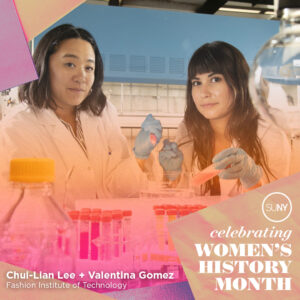 On a trip halfway across the world, Fashion Institute of Technology (FIT) students Chui-Lian Lee and Valentina Gomez met while studying sustainable textile design. Confronted by the immense pollution in the creation of fashion, they began to imagine how they could contribute to their industry more sustainably while using conventional methods. After joining the Biodesign Challenge at FIT, their research was ignited by their introduction to biotechnology and the concept that protein structure could use what nature creates to improve textiles.
On a trip halfway across the world, Fashion Institute of Technology (FIT) students Chui-Lian Lee and Valentina Gomez met while studying sustainable textile design. Confronted by the immense pollution in the creation of fashion, they began to imagine how they could contribute to their industry more sustainably while using conventional methods. After joining the Biodesign Challenge at FIT, their research was ignited by their introduction to biotechnology and the concept that protein structure could use what nature creates to improve textiles.
Alongside FIT associate professor, Theanne Schiros, they built their cross-functional co-founding team with Columbia University researchers Helen H. Lu and Allie Obermeyer. The team’s combined expertise created >Werewool. Together they created a low-impact biodegradable textile fiber that maintained performance properties like strength, stretch, and moisture management. All of this was achieved through protein engineering.
Leveraging existing wet-spinning technologies and infrastructure to ensure the scalability of their process, they produced a pink intrinsic fiber that has cut out the dyeing process from the supply chain.
Today, they lead a 67% female, 58% minority research team out of the SUNY Downstate Incubator: Tech @ 710 and are currently working to expand their color palette and functionality. Their next big milestone? Creating the first pair of fluorescent pink yoga pants that can fully degrade into nutrients to support a healthy ecosystem at the end of its life!
![]()
Lynn Couturier MacDonald, D.P.E. – SUNY Cortland
When you think of “research” P.E. is not the first subject to come to mind. For our next Women’s History Month feature, we’ve shined the spotlight on SUNY Cortland‘s distinguished service professor and interim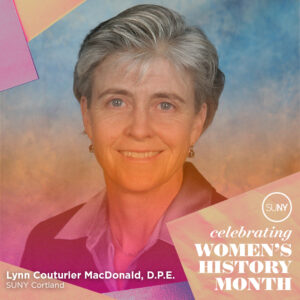 dean of the School of Professional Studies, Dr. Lynn Couturier MacDonald.
dean of the School of Professional Studies, Dr. Lynn Couturier MacDonald.
Dr. MacDonald has spent her career developing national standards for K-12 Phys. Ed. programs. Prior to SUNY Cortland, she had stops at the USCG ACADEMY, Springfield College, and the Massachusetts Institute of Technology. With her expertise, she helped the Red Dragons maintain their status as a national leader in physical education studies.
Physical education is based on multiple disciplines and as a former President of the National Association for Sport and Physical Education (NASPE), Dr. MacDonald helped to create the framework to combine the basics of physical education with the study of how people learn. She then tested those theories with people in the field so teachers and coaches could be successful in their classrooms with the goal of helping teachers address the average student in class, not the superstar athlete.
Dr. MacDonald jumped into this field of research like most others; she was an athlete in high school and with her love of sports firmly in place, she planned to become a physical education teacher. She never would have guessed where her path would lead. After teaching P.E. and coaching at all levels, including high school and college, she earned her D.P.E. and moved into higher education to help improve the field by training the next generation of teachers.
After years of work on the national standards and earning numerous honors in her field, including SUNY Chancellor’s Award for Excellence in Faculty Service (2017), Lynn felt called back to her passion for women’s sports history and currently has a research project in the works. Looking back on her career one thing is for certain, “the thing about a career in physical education is that you really must love working with kids. It’s a pivotal time in their lives and I wanted to be the kind of person that they might want to emulate one day.”
Dr. Jacquelyn Meyers – Downstate Health Sciences Center
Associate Professor of Psychiatry, Jacquelyn Meyers, Ph.D. has been a part of the fabric of SUNY Downstate’s diverse community for nearly a decade and is at the forefront of research in the field of psychiatric epidemiology and molecular genetics. Dr. Meyers’ extensive research studying mental health and substance abuse disorders intertwined with examining the DNA of genes has garnered the interdisciplinary program she leads at SUNY Downstate. This program examines the concurrence of psychosocial, genetic, and neurodevelopmental risk factors for substance use disorders.
Recently appointed as Co-Director of the Henri Begleiter Neurodynamics Institute, one of SUNY Downstate’s most successful and longest-running research laboratories, Dr. Meyers serves as PI, Co-I, or Project Lead on numerous grants with a successful track record of receiving funding that has furthered her investigations into neurocognitive markers.
Her passion for teaching and mentorship has led her to serve as the primary research mentor to Ph.D. and M.D./Ph.D. candidates and psychiatry residents. Across campus, she’s led several courses and lectures in psychiatric and genetic epidemiology.
Dr. Meyers is dedicated to understanding the deep inner workings of the human brain and to finding answers to help those most in need in our communities
Dr. Neha Patankar – Binghamton University
Our final #womeninresearch spotlight takes a closer look at macro-scale energy systems, something Binghamton University’s Dr. Neha Patankar knows all about.
What exactly does “macro-scale energy systems” mean? Good question!
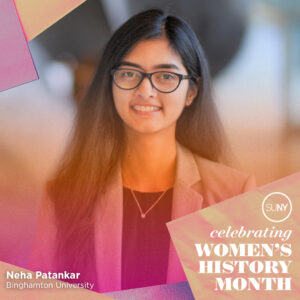 Macro-energy systems aim to understand the dynamics, benefits, costs, and impacts of large-scale energy systems and the shift to more renewable energy sources, and Dr. Patankar does just that. As an assistant professor of systems science and industrial engineering and a leading expert in the field, Dr. Patankar leverages her expertise to apply sophisticated large-scale linear programming models and advanced analysis techniques to provide utilities, policymakers, and stakeholders with robust energy technology and infrastructure deployment frameworks.
Macro-energy systems aim to understand the dynamics, benefits, costs, and impacts of large-scale energy systems and the shift to more renewable energy sources, and Dr. Patankar does just that. As an assistant professor of systems science and industrial engineering and a leading expert in the field, Dr. Patankar leverages her expertise to apply sophisticated large-scale linear programming models and advanced analysis techniques to provide utilities, policymakers, and stakeholders with robust energy technology and infrastructure deployment frameworks.
By shedding light on system-wide technology and resource tradeoffs and assessing realistic pathways, Patankar’s research can guide policy decisions amidst techno-economic uncertainty.
With a specialty focus on the dynamic landscape of the electricity sector, Dr. Patankar’s team is currently spearheading the development of a groundbreaking Community Energy Compass Tool. This innovative tool aims to empower diverse stakeholders by providing them with invaluable insights into alternative strategies and fostering consensus-building toward the swift, equitable, and resilient realization of #netzeroemissions in the electricity infrastructure landscape.
Before joining Binghamton University, Dr. Patankar earned a PhD in Operations Research from North Carolina State University and as an associate research scholar at Princeton University.
Thanks for celebrating these awe-inspiring SUNY researchers with us—their work is making substantial impacts in their fields for the betterment of our communities and our world.


